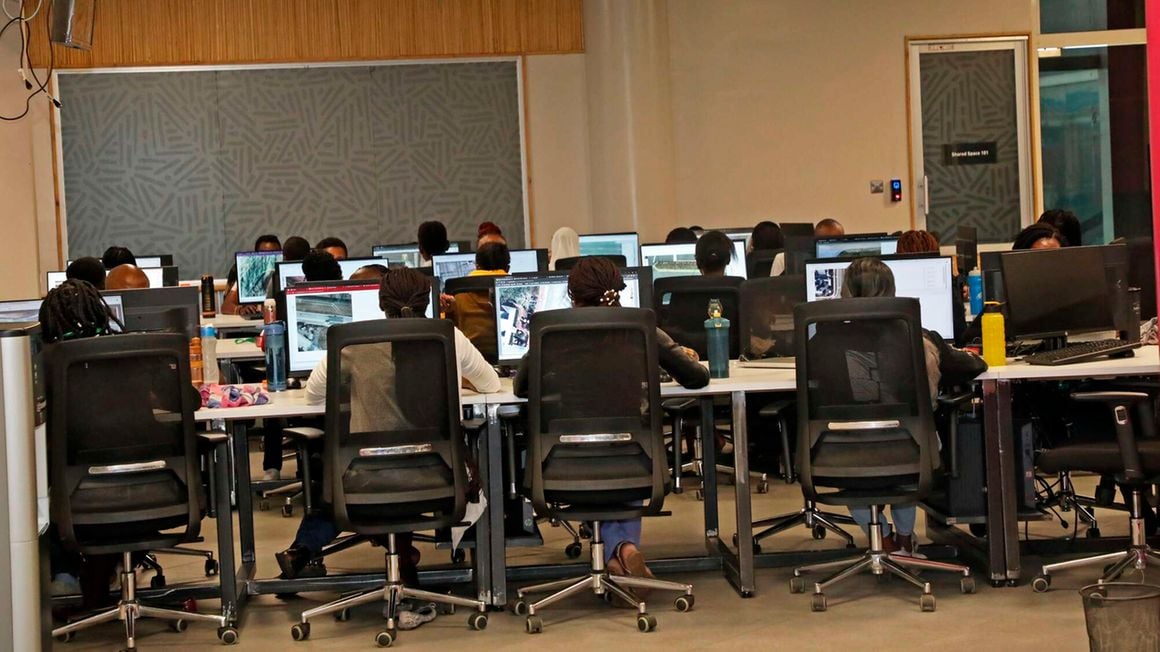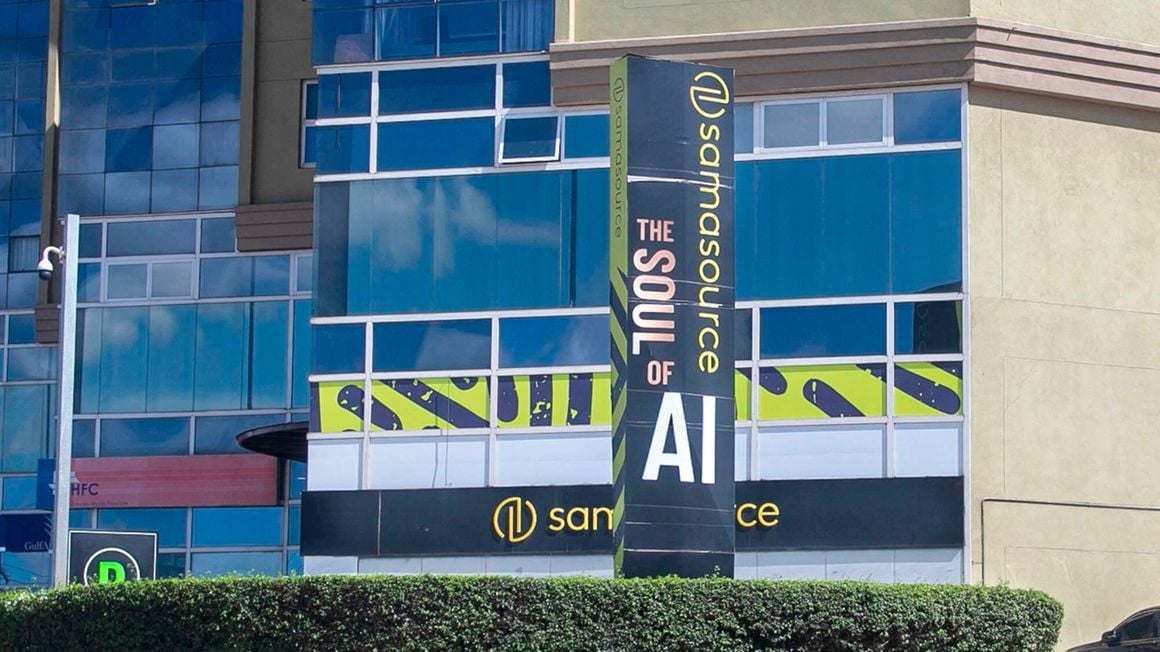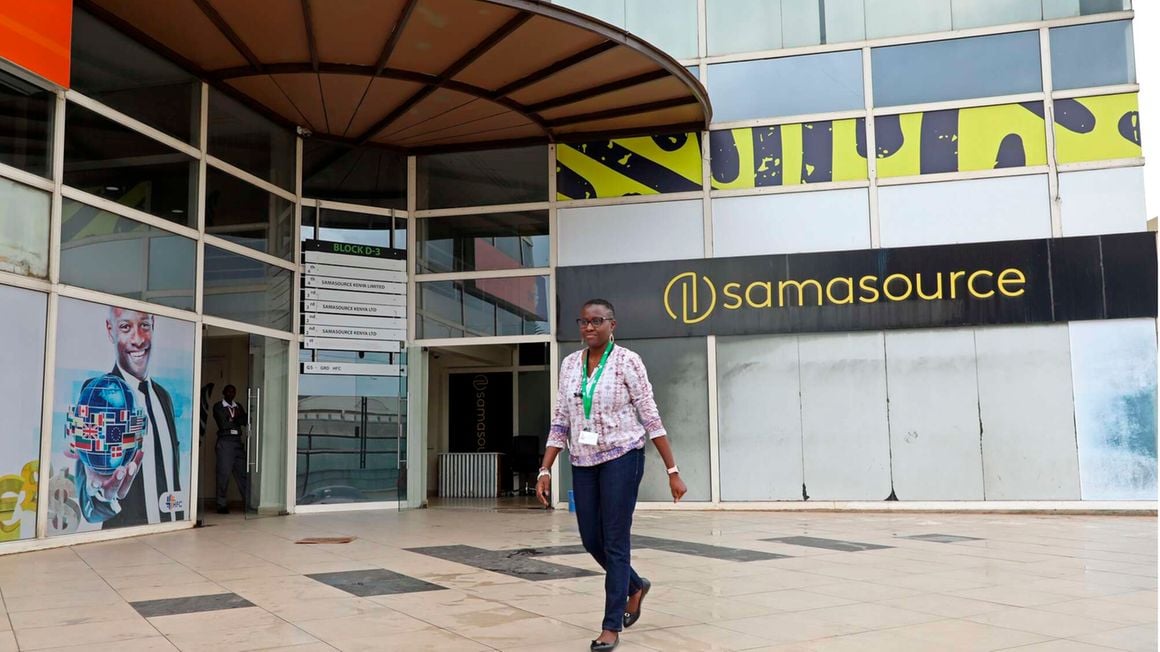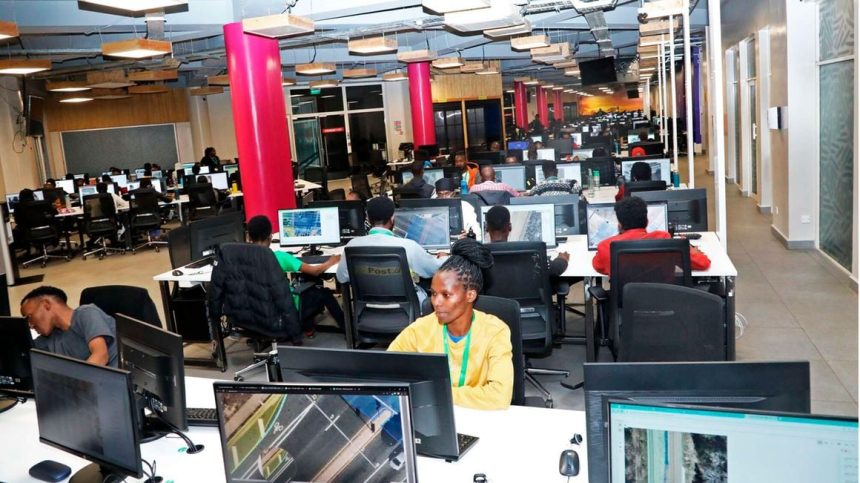Recent months have been a tough sail for tech firm Samasource Kenya EPZ, otherwise known as Sama, following scathing reports of staff mistreatment and labour laws misuse after the dismissal of about 200 content moderators earlier in the year.
Sama had been contracted by Facebook owner Meta and tasked with the mandate to carry out content moderation work on its (Meta’s) platforms before the two entities parted ways in January resulting in redundancy notices being issued to the moderators.
The dismissed lot then moved to court seeking protection from the firing, a suit that is still ongoing.
But stung by the controversy, the firm based on Mombasa Road is reinventing itself.
The firm’s global service delivery vice president Annepeace Alwala says Sama stopped offering the moderation service in January as part of a ‘restructuring strategy’ and instead turned the full throttle to the provision of Artificial Intelligence (AI) training services to among others, US-based Fortune-listed clients.
3,000 workforce
Sama, operating with a workforce of over 3,000 staffers who occupy four floors in the Sameer Park-based office, delivers inputs needed for machine learning development in fields such as autonomous transportation, e-commerce, communications and media.
The activity, commonly known as data annotation, involves the process of labelling data with relevant tags to make it easier for computers to understand and interpret.
The data can be in the form of images, text, audio or video and data annotators are required to label it as accurately as possible.

Samasource employees at work on August 9, 2023. PHOTO | LUCY WANJIRU | NMG
In the modern age of advanced technologies, Ms Alwala explains, AI systems are relying on vast amounts of accurately labelled data to help machines learn and make informed decisions and this is where annotators such as Sama come in.
In essence, data annotation acts as the bridge in the gap between raw data and intelligent algorithms that aid machines in aspects such as computer vision and natural language processing.
Ms Alwala says that data annotation is critical for building domain-specific AI applications, noting that every industry has its own unique requirements and context that necessitate specific tailored labelling.
“In the automotive industry, for example, data labelling allows AI-driven motor vehicles to recognise and understand road signs, pedestrians, other vehicles and objects, ensuring the safety and efficiency of human-driven vehicles,” she states.
“Sama offers data annotation and validation for machine learning algorithms in a range of industries that include automotive, biotechnology, agriculture, virtual reality, manufacturing, and e-commerce.”
How they do it
In Kenya, Ms Alwala says, the firm engages the youth, trains them on basic computer skills and pays them a local living wage for their labour.
“Our primary focus is to impact lives. So in our mode of hiring, we look for the people who are most unlikely to secure jobs elsewhere. We don’t hire university graduates or Masters’ degree holders, we look for those that society has ignored,” states Alwala.
“Our typical person of interest is, say someone who has just finished Form four, it will be the person who has no connections, the person from the most humble background. We give you more points if you are unlikely to be employed because of educational considerations.”
Once the new entrants have been hired, they are taken through training sessions while receiving remuneration after which they are now engaged commercially.
The operations at the facility are largely manual as this is the model that is most popular when the data in question can be visualised.

Photo shows the office premises of Samasource, in Nairobi on June 07, 2023. PHOTO | AFP
In the open space, hall-like offices, the employees are tasked with manually identifying objects of interest in the image, video or text and adding metadata to each media file based on the nature and/or the position of the objects.
When it comes to precision and accuracy, Ms Alwala explains that skill mastery is acquired with practice and that in the initial days when new recruits are onboarded, they are closely monitored by a team of supervisors as a measure to guarantee quality.
“With experience, manual marking sharply captures the edges of the data frames and ensures data consistency across massive quantities of files,” she explains.
Some of the notable names in the firm’s clientele portfolio include Google, eBay, Intuitive Surgical, General Motors, Microsoft, and DoorDash.
Tracing Sama’s roots
Ms Alwala runs BD Enterprise down the history of the firm’s founding explaining that it was started by American businesswoman Leila Janah in 2008 with a focus to expand opportunity for low-income individuals and a bigger mission to eradicate poverty in the underserved parts of the globe.

A view of the SamaSource building in Nairobi pictured on August 9, 2023. PHOTO | LUCY WANJIRU | NMG
Ms Janah, now deceased, was working as an English and creative writing teacher in Rural Ghana when she developed an interest in global development after seeing her students’ ambition coupled with the rise in global literacy and access to technology, therein drawing inspiration to found Samasource.
At the time of the visit, the four floors fully equipped with thousands of computer desktops were fully occupied, with trainings in some quarters and job executions in others going on.
But the firm has to deal with the court case with its moderators if it has to move to its next stage.



